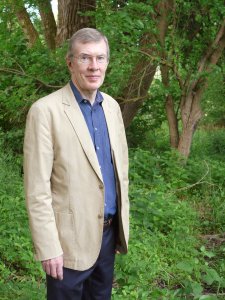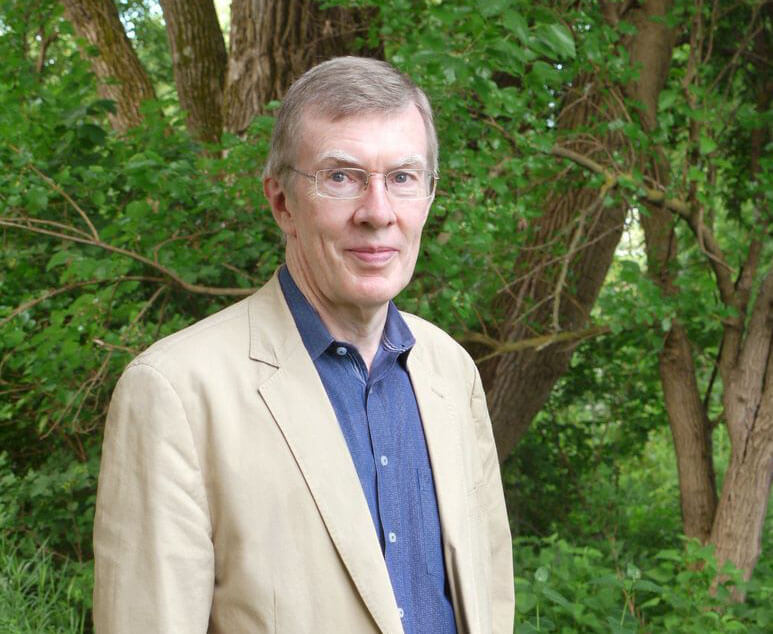
Professor William Kinderman arrived in Los Angeles from the Midwest last week to assume his position as the inaugural holder of the Leo M. Klein and Elaine Krown Klein Chair in Performance Studies. This newly endowed chair will enable the school of music to enhance its reputation as an innovative center for the training of the “thinking musician,” integrating the promise of the school’s balance between excellence in performance and in scholarship.
Kinderman completed his Ph.D. in music at the University of California, Berkeley and is “extremely pleased” to return to California. “I am enthusiastic about the Herb Alpert School of Music’s achievements and potential, and its incomparable setting at this great university in a major urban center,” he said.
As the esteemed pianist and Beethoven expert settles into life in Westwood, we caught up with him to learn more about his vision for Performance Studies at UCLA and what he hopes our students will gain from their studies.
When did Performance Studies first emerge as an academic discipline?
Performance Studies is both old and new. In earlier times, musical activities were more integrated. Mozart and Beethoven learned music theory and improvisation through figured bass realization, which provided a springboard to original composition. More recently, the sub-disciplines of music have become more distinct, with theory and composition separated from musicology, and both areas distanced from performance. Performance Studies accomplishes a reintegration, blending theory and practice, the rational and the sensuous, the head and the heart.
What inspired you to become an expert in this field?
I pursued activities as a pianist, giving concerts and making recordings, even when my institutional positions did not carry this expectation. This path went against the grain of specialization. My book projects felt incomplete without a performance dimension. My first Beethoven book, on the Diabelli Variations, only truly reached its fulfillment when I also recorded that piece after performing it dozens of times. Along the way, this project brought me into rewarding contact with outstanding performers, such as Alfred Brendel and András Schiff, among others.
Can you describe what a student may expect to gain through the Performance Studies area at UCLA?
I encourage students to enrich their performance ability through enhanced knowledge, while moving beyond factual information toward the kind of insights that help make artistic communication exciting and memorable in the here-and-now, touching the listeners. I’m interested in merging the experience of doing and thinking, practical and conceptual knowledge.
What do you hope students will gain from your teaching?
I hope they’ll gain an enhanced appreciation of history and theory—of the world of books and treatises—by seeing how they can draw inspiration from ideas that will enliven and deepen their imagination. Feeling is important, but control and refinement enables a performer to reach higher levels. Where and how do we take interpretative freedom in performance?
How does Performance Studies benefit students who seek to be performers?
Performance Studies—or Artistic Research, as this approach is called in some European countries—can at its best open exciting new perspectives and teaching opportunities by countering trends toward compartmentalization and overspecialization in music education. The approach of Performance Studies is gaining momentum, it is in increasing demand.
Finally, can you give our readers a sneak peek of your preliminary plans to celebrate the 250th year marking Beethoven’s birth?
Already next May we have an opportunity for some Beethoven activity in connection with a traveling exhibition from the Beethoven-Haus at Bonn that will be coming to Los Angeles. My own plans include a book for broad circulation on Beethoven: A Political Life to be published by the University of Chicago Press during this upcoming Beethoven anniversary year 2020. There are many plans worldwide to celebrate the Beethoven year, from Bonn and Vienna to Taiwan, Lucca, Cologne, Oxford, Boston and Houston, just to name a few. But the last and best of all may be the celebration being planned here at UCLA during the second week of December 2020, culminating in a re-creation of the extraordinary monster concert Beethoven himself organized in December 1808. That program will include the Fifth and Sixth Symphonies, parts of the C major Mass, the Fourth Piano Concerto, and the Choral Fantasy, among other pieces. Some surprises are in store that should draw broader public attention. There is no better place than UCLA to mark the 250th anniversary of the composer’s birth in 1770.


